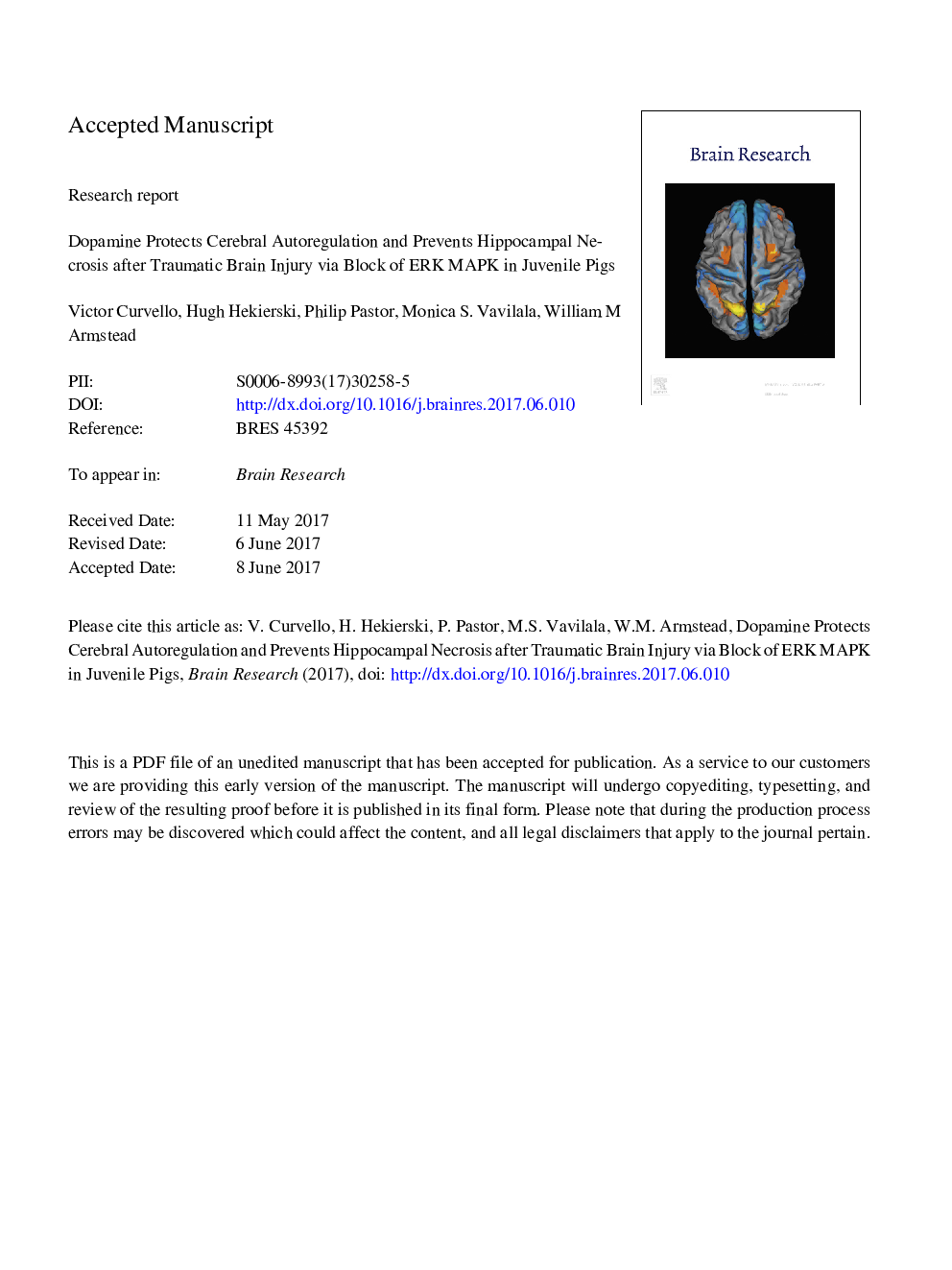| Article ID | Journal | Published Year | Pages | File Type |
|---|---|---|---|---|
| 5736701 | Brain Research | 2017 | 27 Pages |
Abstract
Traumatic brain injury (TBI) contributes to morbidity in children, and more boys experience TBI. Cerebral autoregulation is impaired after TBI, contributing to poor outcome. Cerebral Perfusion Pressure (CPP) is often normalized by use of vasoactive agents to increase mean arterial pressure (MAP). In prior studies of newborn and juvenile pigs, vasoactive agent choice influenced outcome after TBI as a function of age and sex, with none protecting cerebral autoregulation in both ages and sexes. Dopamine (DA) prevents impairment of cerebral autoregulation in male and female newborn pigs via inhibition of upregulation of ERK mitogen activated protein kinase (MAPK) after fluid percussion injury (FPI). We investigated whether DA protects autoregulation and limits histopathology after FPI in juvenile pigs and the role of ERK in that outcome. Results show that DA protects autoregulation in both male and female juvenile pigs after FPI. Papaverine induced dilation was unchanged by FPI and DA. DA blunted ERK MAPK and prevented loss of neurons in CA1 and CA3 hippocampus of males and females after FPI. These data indicate that DA protects autoregulation and limits hippocampal neuronal cell necrosis via block of ERK after FPI in male and female juvenile pigs. Of the vasoactive agents prior investigated, including norepinephrine, epinephrine, and phenylephrine, DA is the only one demonstrated to improve outcome after TBI in both sexes and ages. These data suggest that DA should be considered as a first line treatment to protect cerebral autoregulation and promote cerebral outcomes in pediatric TBI irrespective of age and sex.
Related Topics
Life Sciences
Neuroscience
Neuroscience (General)
Authors
Victor Curvello, Hugh Hekierski, Philip Pastor, Monica S. Vavilala, William M. Armstead,
